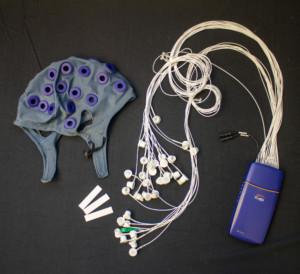HeAT Laboratory is an environment for the study and development of health and assistive technology and services. With a network of professionals, HeAT provides expert research services for health technology products. Research expertise include all steps from research plan to reporting the results, with all required documentation for clinical studies.
The establishment of the laboratory was a collaborative effort between research groups from Tampere University and Tampere University of Applied Sciences (TAMK). The result is a comprehensive, multidisciplinary research environment under one roof, to be used in education, research and co-creation. Nowadays the laboratory, which is located in Hervanta campus, is a part of Tampere University, the Faculty of Medicine and Health technology, working in close collaboration with TAMK and SOTE virtual lab. HeAT lab is a part of the Tampere Health Technology and Life Sciences-ecosystem supported by Business Tampere.
”HeAT lab could connect special signal processing and artificial intelligence method knowledge to clinical partners and companies or organizations interested in neurological research questions. Networking with Neurocenter Finland helps to coordinate interested partners in future brain and mind research,” says university instructor Milla Juutinen, from the Decision Support for Health-research group.
Some of the HeAT laboratory equipment can also be utilized outside the lab for mobile measurement setups. For example, the HeAT lab has a wireless 32-channel EEG device (TMSi Mobita, image below) for measuring brain activity on the go. This device can provide more freedom of movement and offline measurements without a central measurement unit. On the other hand, with online measurements EEG signal can be synchronized with other physiological measurements. Water-based electrodes provide good electrode contact without the use of conductive paste.

The laboratory also has a briefcase-sized sleep laboratory system (Nox A1) available, enabling clinically valid sleep studies to be recorded at the comfort of one’s own home, instead of performing the measurements at the hospital overnight.
If you are interested in collaboration with the HeAT Laboratory, please contact:
Milla Juutinen
Tampere University
milla.juutinen(at)tuni.fi
To find out more about the equipment for research and validation, please visit the HeAT-laboratory – website
Images by: Jukka Lehtiniemi, Tampere University

